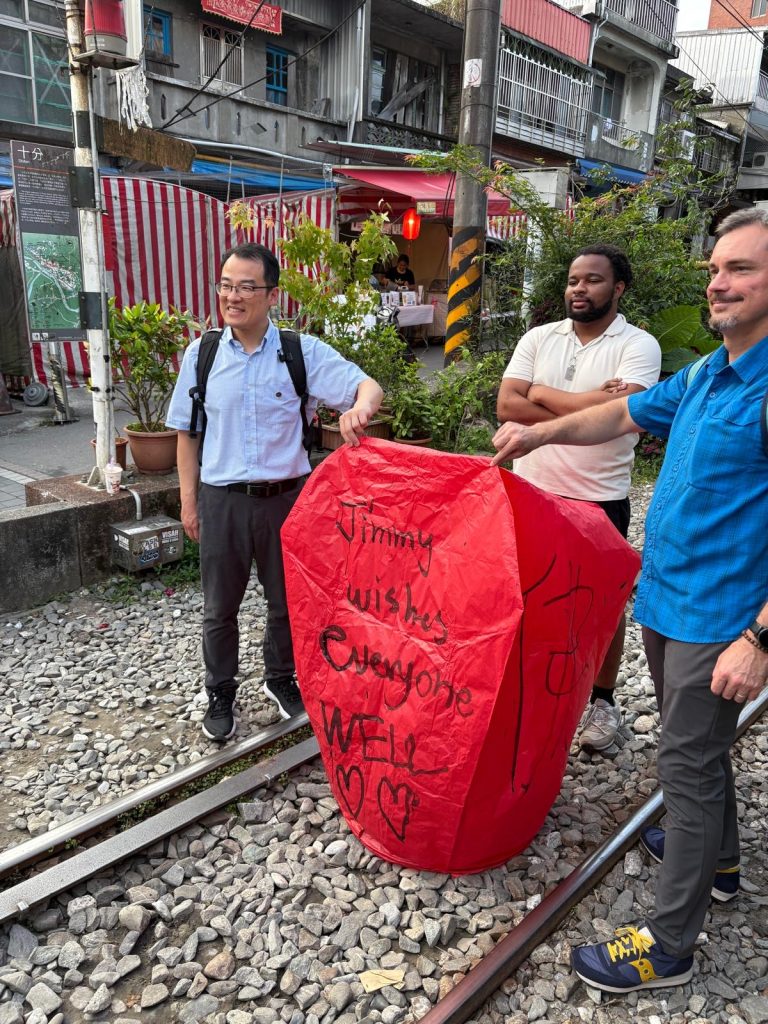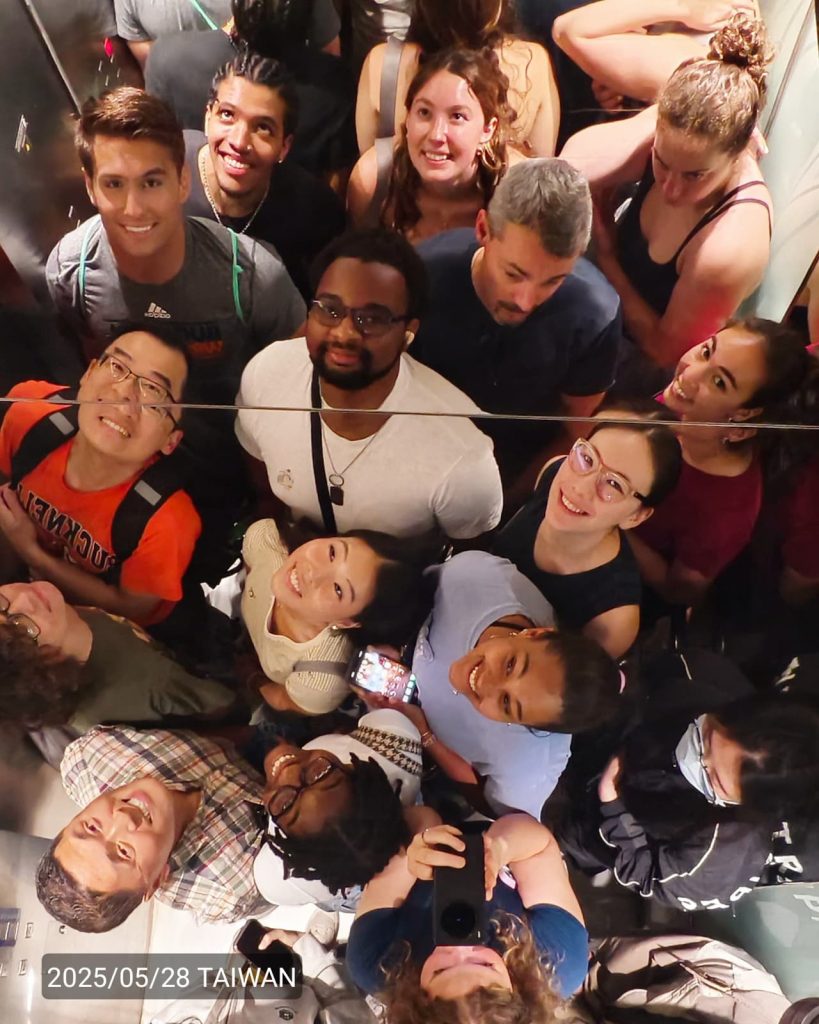
Reflections on Taiwan
Interactions with local people have been facilitated by mutual effort and positive energy.


One of my main concerns going into this program was whether I’d be able to communicate with people, especially considering that one of my goals was to meet people and possibly make friends. Indeed, I did run into many people who primarily spoke Mandarin or Taiwanese, but these situations almost always worked out in the end, and I still managed to make meaningful connections. I can remember one time at Xingtian Temple when a volunteer came up to us while we were looking at the huge koi. I ended up pulling out my Google Translate app for her to speak into, and she said “Hey Google, how do you say 40 years in English?”. I appreciated this funny moment because she took the time to come over and show us something cool. This helped me recognize that many people in Taiwan are super friendly and happy to connect if you make the mutual effort to do so.
Taiwan participates in the global economy via semiconductor production and imported energy.



Such large companies reflect the local culture, which is influenced by Confucian values.



I learned many things here, and one of my main takeaways was Taiwan’s position in the global economy. It is notable as one of the world’s foremost sources of semiconductor innovation, and at the same time it is almost wholly dependent on other nations for the import of energy. This locks Taiwan in a state of economic interdependence that has it becoming increasingly involved in the global network. We also learned how businesses in the technology and manufacturing division are primarily governed by Confucian values surrounding good education and work ethic (apparently work-life balance at Hsinchu is even laughable!), but there other religions can also play a large role in the business world.
Large Buddhist institutions also contribute to local and global economy and welfare. Two examples are:
1) Fo Guang Shan



2) Dharma Drum Mountain
I don’t have a lot of pictures of this one, was too busy meditating 😉

Taiwan has three large Buddhist institutions with global reach that have established everything from hospitals to universities to restaurants. While the business aspect of these institutions was surprising, for example Fo Guang Shan’s museum was practically a shopping mall, I still learned a lot about mindfulness, meditation, and connecting with one’s own spirituality while still connecting with others.
The practice of religion in every day life is more evident in smaller companies and amongst families.


I’ve also seen how Taiwan’s rich and diverse religious and social culture has influenced business at a smaller level. Families and small businesses continue to worship the gods of Daoism to this day in the hopes of receiving success and fortune in all matters of life, whether monetary or in one’s personal life. These businesses have small altars, as we saw at the Hong Jaan Printing Company, and will celebrate the gods alongside friends and coworkers as part of holiday traditions. I also noted a general air of hospitality and warmth we received from everyone we met, companies and monasteries alike. This is a testament to the high level of interconnectedness that I believe is quite unique to Taiwan’s culture.
AI is becoming a key technology for many industries and even religious institutions.


Aside from recognizing Taiwan’s role in the US’ imminent future, I have also seen a pattern in the use of AI in many spheres of life. We of course saw this during our class visit to COMPUTEX to learn about the company Gigabyte, in which we saw technology meant to aid the advancement of AI as well as practical applications of AI into security, medicine, and things like gaming. However, there were many areas that I was surprised to see the use of AI. For example, one of the companies we visited, Studio76, is starting to use Midjourney to turn classic movies into webcomics so they can reach new audiences. Even Foguangshan, one of Taiwan’s largest and most influential Buddhist monasteries, plans to use AI chatbots to translate sutras and pass on the words of their founder, Hsing Yun. I’ve come to see how such technologies can benefit people from all walks of life and will be important to all industries in the future.
Learning about Taiwan’s history has rounded out my knowledge of present-day business and religious affairs.


I’ve also been deeply impacted by many things I have learned outside of our main themes of business and religion. Although I am by no means a history buff, I’ve taken a vested interest in learning about Taiwan’s establishment and recent history. Being here, I’ve come to see the similarities and differences between Taiwan and other Asian countries that have religions in common or are neighboring Taiwan. Although Taiwan represents a fusion of other cultures due to its complex history, it has developed beyond these influences to become a nation with a strong democracy and a distinctive culture. One day that sticks out to me is when we visited the American Institute in Taiwan, which elucidated the US perspective of Taiwan (or the Republic of China) and its relationship to the People’s Republic of China (PRC). Our visit to the Chiang Kai-Shek Memorial and the Peace Park also enlightened me to tragedies and struggles I’d never even heard about until I came to Taiwan. In addition to our overarching question of how business and religion mutually influence one another in Taiwan, I’ve come to consider the question of what constitutes national identity and how that identity can be protected.
What constitutes national identity? How is this identity maintained?
In such a short time, I feel like I’ve become a more informed and well-rounded person. I now have valuable knowledge on how to connect with another culture and how culture is an essential consideration within business or any other industry. I’ve gotten so much out of this study abroad program and am so grateful to Prof. Chen and Prof. Young for introducing us to this wonderful country. I’d like to thank my classmates as well for making this experience all the more meaningful.

